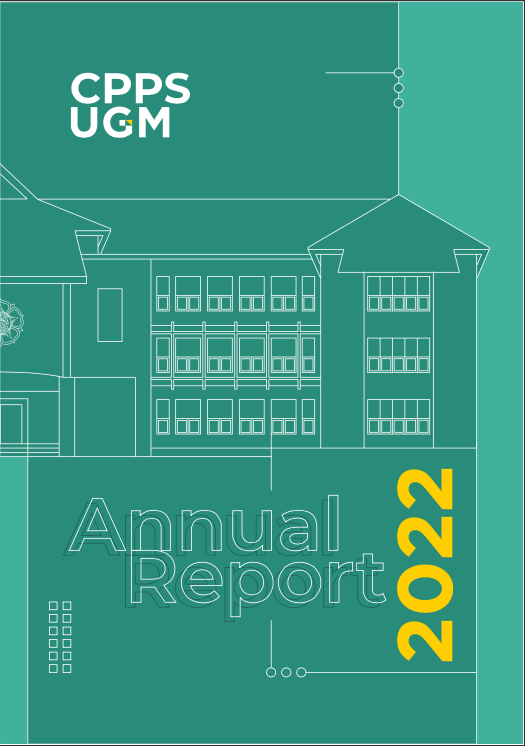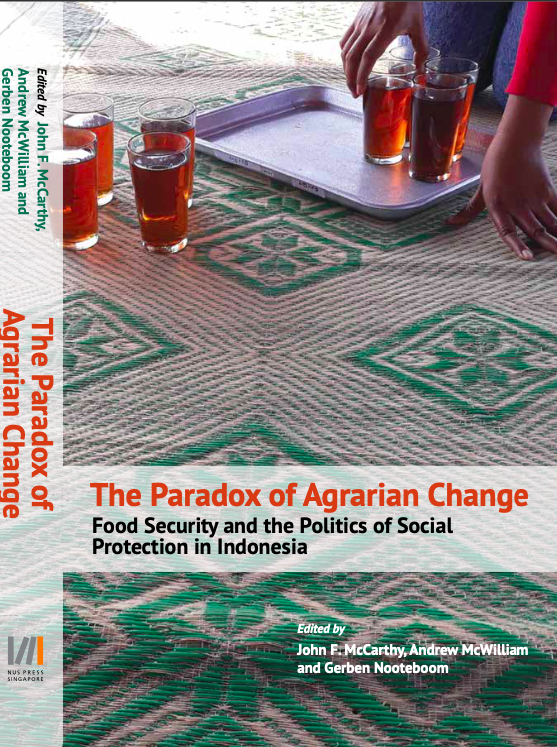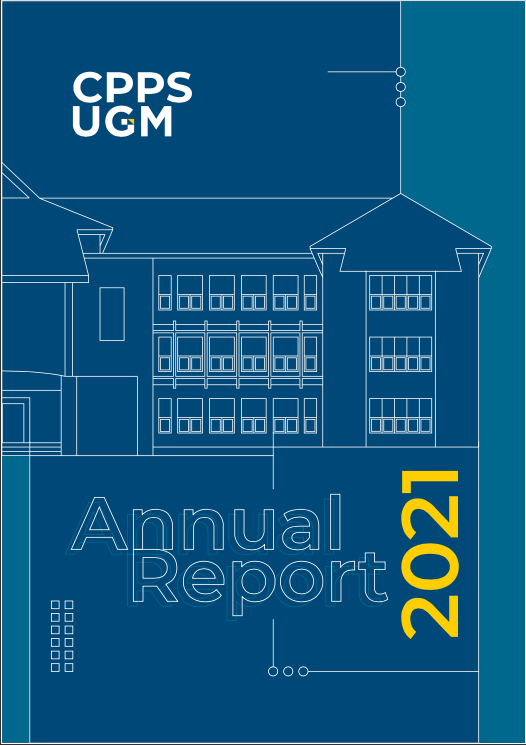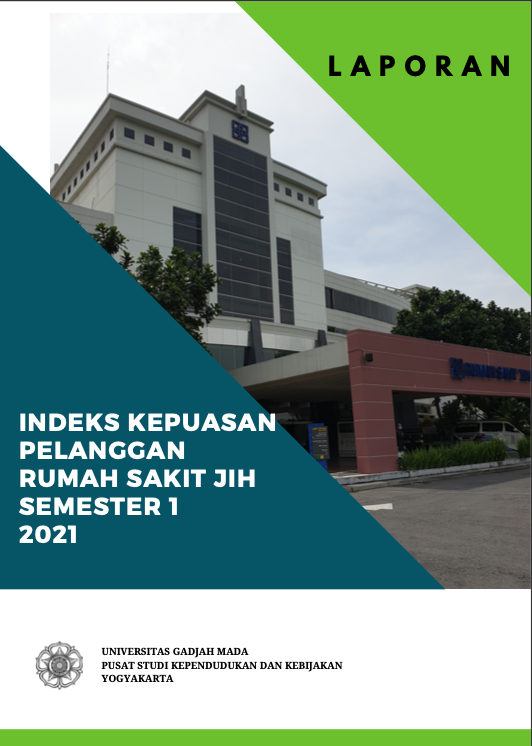Populasi Volume 17 Nomor 1 Tahun 2006
|
Hubungan Umur dengan Perubahan Pekerjaan: Suatu Aplikasi Meta Analisis dalam Ukuran Sampel
Ni Wayan Suriastini
Meta Analysis is fair statistical technique to integrate results of study have been done. This article integrates studies which explore relationship between age and job changes. This study found correlation value of age and job change over estimate by 4% and its variance over estimate by 14% before corrected by sampling error. Outlier of large sample size influences Meta Analysis result. If a study with large sample size has correlation value lower than mean of correlation of the other studies, the study will make the corrected value and variance correlation under estimate.
Keywords: job change, sample, meta analysis
Kebijakan Dinas Tenaga Kerja dan Transmigrasi dalam Perluasan Kesempatan Kerja di Yogyakarta
Bayu Prakoso
The reason behind this research is that there are still problems in limited job opportunities in regency / municipality in Yogyakarta Special Region. The increase of labor force is not yet followed by the increase of job opportunities. The policy made by Dinas Tenaga Kerja dan Transmigrasi is not yet solving this problem so it cause questions, such as, first, what kind of programs which have been made by Dinas Tenaga Kerja dan Transmigrasi in each regency / municipality in Yogyakarta Special Region to increase job opportunities. Second, the matchness of job extension programs in Dinas Tenaga Kerja dan Transmigrasi in Yogyakarta Special Region compare to the labor force.
Keywords: unemployment, employment policy
Jaminan Pemeliharaan Kesehatan Bagi Masyarakat Miskin di Kota Yogyakarta
Eddy Kiswanto
The research aims to find out the implementation of JPKM before and after being organized by PT. ASKES, the financing and health service accepted by those who join JPKM program in Yogyakarta City, and how useful was JPKM program according to poor citizens in Yogyakarta City. This research is designing to combine two methodologies, quantitative and qualitative method. A qualitative research needed to conduct a survey and a qualitative research aim to get more comprehensive view from stakeholders in the implementation of JPKM in Yogyakarta City. The results of this study are (1) the low level of commitment from local government in Yogyakarta City in health sector; (2) Yogyakarta City has not yet developed its own social security system; (3) there is no complete database of poor citizens to be used in order to appoint the target for this health insurance program; (4) from the point of view of the target, health card has shown effective.
Keywords: public health maintenance security, health insurance, poor citizens
Pemagangan Luar Negeri Tenaga Kerja: Proses, Pendapatan, dan Alih Teknologi
Agus Joko Pitoyo
This study is aimed to investigate the mechanism of abroad apprenticeship labor program, including income rate, to understand the process of transferring knowledge, and to portray its implementation to regional development. There are at least three aspects will be discussed, firstly, to understand the process of apprenticeship overseas; secondly, to evaluate their income and economic activities after returning home; and thirdly, to evaluate how the local government involves in empowering ex-apprentice labor overseas. The research employed several methods for getting data such as structured interview by using questionnaire, focus group discussion, indepth interview, tracking, and observation. This study indicated that (1) apprenticeship process mechanism is not fully transparent yet; (2) their income are relatively high, however, looking at their job they are still absorbed in 3D jobs (dirty, dangerous, difficult); (3) several arising problems set the volunteer in low bidding position, and (4) process of transferring knowledge they got from overseas is vague.
Keywords: apprenticeship, migrant worker, transferring knowledge
Strategi Budaya untuk Pemulihan Usaha Kecil dan Menengah (UKM) di Yogyakarta Pascagempa
Erwan Agus Purwanto
In May 27, 2006 earthquake hit Yogyakarta and Central Java measured 5.9 on the Richter scale and lasted for 52 seconds. The impact of earthquake in May 27, 2006 which hit Yogyakarta and Central Java was very devastating. To add the anguish, one of the most important economic pillars of Yogyakarta’s inhabitants: the Small and Medium Enterprises (SMEs) were also severely affected by the calamity. The preliminary assessment done by various institutions found that thousands SMEs actors have lost their enterprises. Moreover, ten thousands SMEs workers lost their jobs by which they make a living. To ease the pain of the impact of this tragedy, this paper offers a scenario to utilize the strong altruism culture of Yogyakarta’s community as an economic instrument to help the SMEs actors to rebuild their business. The cultural instrument here means that people in Yogyakarta are suggested to use their moral judgement rather than rational one when making a choice to fulfill their daily needs: that is by switching their preference from buying branded manufactured goods made by big factories to simpler products made by SMEs. This community movement, hopefully, will boost the demand of SMEs products which in the end could support the efforts of the SMEs actors to recover their business.
Keywords: earthquake, small and medium enterprises (SMEs), moral economy
Ketahanan Pangan dan Siklus Beras: Catatan Lapangan di Dua Desa
Faturochman
Among Indonesians, food security is simply defined as rice availability. Most of Indonesians eat rice, but they cannot produce it sufficiently. While agriculture is the main sector of employment where more than 50% people absorbed and mostly they work to produce rice, Indonesia is also number one as rice importing country. It can be worse than dependent on imported rice when farmers have not stored their own harvested rice. This study shows that farmers sold rice directly from the field during the harvesting time. They were more likely to have money rather than rice that would be bought daily or weekly from markets or shops. Here, the main problem of food security appeared since they were dependent on rice markets. This article focuses on the dynamic of local rice cycle related to social, political and economic problems. The issues are discussed based on household and community data in two areas of Java.
Keywords: rice, market, insecurity
Rural-urban Linkages, Non-farm Sectors and Farming Practices in Yogyakarta Special Region (DIY)
R. Rijanta
Tulisan ini bertujuan menilai hubungan pertanian dan nonpertanian di tingkat rumah tangga di DIY, mengingat petani dengan lahan kecil mendominasi penguasaan lahan di perdesaan. Sampel rumah tangga dipilih secara random untuk mewakili empat tipe zona agro ekologikal di DIY dan mewakili perdesaan urban. Analisisnya menggunakan pengukuran statistic deskriptif. Hasil penelitian menunjukkan rumah tangga perdesaan yang mempunyai aktivitas terkait dengan nonpertanian cenderung memakai alat pertanian modern dan membayar buruh. Akan tetapi, beberapa petani pemilik lahan kecil di daerah perdesaan DIY yang tersisa terpaksa menggunakan pendapatan dari nonpertanian yang didapatnya dari daerah urban untuk meningkatkan hasil pertaniannya.
Kata kunci: hubungan desa kota, faktor pertanian, praktik pertanian, perdesaan DIY
——————————
Cara Berlangganan
1. Mengisi formulir berlangganan
2. Transfer biaya langganan melalui rekening Bank Niaga Cabang Soedirman Yogyakarta, No. Rek. 018-01-1412-00-3, atas nama YP3K UGM
- Harga eceran: Rp 15.000,00 / eks
- Langganan P. Jawa: Rp 40.000,00 / tahun (sudah termasuk ongkos kirim)
- Langganan Luar P. Jawa: Rp 50.000,00 / tahun (sudah termasuk ongkos kirim)
3. Fax formulir berlangganan dan bukti transfer ke 0274 – 556563 atau 582230
Petunjuk Bagi Penulis
Redaksi menerima kiriman artikel dengan ketentuan sebagai berikut:
1. Artikel belum pernah dipublikasikan oleh media cetak lainnya.
2. Artikel dapat berupa hasil penelitian (lapangan, laboratorium, kepustakaan), gagasan konseptual kajian, dan aplikasi teori, serta ulasan buku.
3. Naskah ditulis dalam bahasa Indonesia atau bahasa Inggris, diketik spasi 1,5 pada kertas ukuran kuarto atau A4, jumlah halaman antara 25 sampai dengan 30 halaman, termasuk daftar pustaka, tabel, dan gambar/peta.
4. Artikel ditulis dalam bentuk esai dan berisi:
- Abstrak (50-75 kata) dengan bahasa yang tidak sama dengan bahasa artikelnya,
- kata-kata kunci (2-4 kata),
- identitas penulis (CV ringkas),
- pengantar/pendahuluan (tanpa sub-bab) memuat latar belakang masalah, sedikit tinjauan pustaka, masalah atau tujuan, dan kerangka pemikiran teoritis. Pembahasan disajikan dalam sub-bab-sub-bab,
- kesimpulan/penutup,
- daftar rujukan / pustaka yang diacu harus pakai dan masuk dalam artikel.
5. Daftar pustaka ditulis dengan tata cara mengurutkan secara alfabetis dan kronologis, sebagai berikut:
- Buku: nama penulis, tahun penerbitan, nama buku (dimiringkan), kota penerbitan, dan nama penerbit
- Salah satu bab/bagian dalam buku: nama penulis, tahun penerbitan, judul bab/bagian (ditulis dalam tanda petik), dalam nama buku (dimiringkan), nama penulis buku, kota penerbitan, nama penerbit, halaman … hingga …
- Jurnal/majalah: nama penulis, tahun penerbitan, judul artikel/jurnal/, volume … nomor … halaman … hingga …
6. Naskah dikirim sebanyak dua eksemplar disertai file artikel (CD) dengan menggunakan pengolah kata (Microsoft Word) ke Redaksi Populasi, Pusat Studi Kependudukan dan Kebijakan UGM, Bulaksumur G-7, Yogyakarta 55281. Dapat pula dikirim melalui email populasi@cpps.or.id
7. Kepastian pemuatan atau penolakan naskah dikirim secara tertulis. Artikel yang tidak dimuat tidak akan dikembalikan, kecuali atas permintaan penulis.





